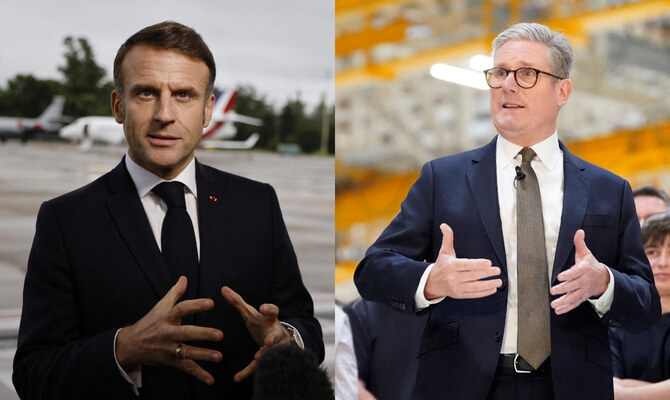BUENOS AIRES/LONDON/WARSAW: France, Britain and Poland on Sunday reaffirmed their support for Ukraine as Russia staged its biggest missile attack since August, targeting Ukraine's power facilities with the winter setting in.
French President Emmanuel Macron said the relentless air barrage showed that Russian President Vladimir Putin “does not want peace and is not ready to negotiate.”
The priority for France was to “equip, support and help Ukraine to resist,” Macron told reporters as he prepared to leave Argentina to attend the G20 Summit in Brazil. “It’s clear that President Putin intends to intensify the fighting,” he added.
He declined to comment on German Chancellor Olaf Scholz’s call with Putin on Friday, stressing that Ukraine’s allies “must remain united .... on an agenda for genuine peace, that is to say, a peace that does not mean Ukraine’s surrender.”
He added that he would only consider a call with the Russian leader when the “context” was right.
In London, Prime Minister Keir Starmer said that he has no plan to speak with Putin as he pledged support for Ukraine as the UK’s top priority at this week’s G20 summit.
Speaking with reporters on the way to the meeting in Brazil, Starmer said he wouldn’t speak to Putin as Scholz did on Friday.
The call between the two leaders, which the Kremlin said was initiated by Germany, was the first publicly announced conversation between Putin and a major head of a Western power in almost two years.
Ukraine's Zelensky criticized the call and said it would only make Russia less isolated.
Ukraine’s allies fear that the election of President-elect Donald Trump, who has questioned US aid sent to Kyiv and spoken favorably about Putin, could alter support from Washington, its biggest backer.
Starmer said allies have to double down now to support Ukraine for as long as it takes.
“We are coming up to the 1,000th day of this conflict on Tuesday,” Starmer said. “That’s 1,000 days of Russian aggression, 1,000 days of huge impact and sacrifice in relation to the Ukrainian people and recently we’ve seen the addition of North Korean troops working with Russians which does have serious implications.”
The UK has committed $16.15 billion in aid to Ukraine since Russia’s full-scale invasion in February 2022.
Also on Sunday, Poland welcomed news that US President Joe Biden had cleared Ukraine to use long-range missiles against military targets inside Russia, something Kyiv had been urging for months.
“With the entry into the war of North Korea troops and (Sunday’s) massive attack of Russian missiles, President Biden responded in a language that (Russian President) V.Putin understands,” Foreign Minister Radoslaw Sikorski posted on X.
“The victim of aggression has the right to defend himself,” Sikorski added in his post. “Strength deters, weakness provokes.”
Ukrainian President Volodymyr Zelensky has long pushed for authorization from Washington to use the powerful Army Tactical Missile System, known by its initials ATACMS, to hit targets inside Russia.
Russian President Vladimir Putin has warned that approval would mean that NATO was “at war” with his country — a threat he has made previously when Ukraine’s Western backers have escalated their military assistance to Kyiv.

























